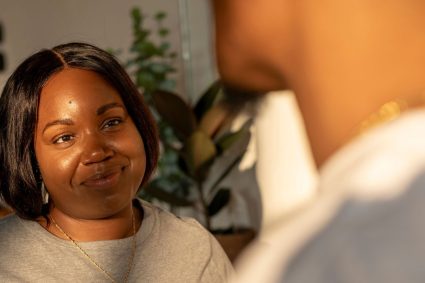
Growing up as an only child, I was surrounded by love and support from my parents. They were my world, and I never truly understood the significance of relationships beyond that intimate circle. I believed that their love and support were all I needed to thrive in this world. However, as life unfolded, I came to realize that human skills and the ability to maintain meaningful relationships were essential ingredients for a fulfilling and successful life.
My parents had instilled in me strong values, nurtured my intellectual curiosity, and provided me with unwavering support. They were my mentors, my confidantes, and my pillars of strength. Yet, as I ventured into the broader world, I encountered challenges and experiences that extended far beyond the confines of my family unit. I discovered that navigating the complexities of social interactions, collaborating with diverse individuals, and building strong professional networks required a skillset that went beyond academic knowledge or technical expertise.
It demanded the ability to communicate effectively, empathize with others, resolve conflicts constructively, and adapt to ever-changing circumstances. These human skills, often referred to as soft skills, were not explicitly taught in the classroom or nurtured within the walls of my home.
They were honed through experiences, trials, and interactions with individuals from all walks of life. I learned to listen attentively, observe subtle cues, and express my thoughts and feelings in a way that fostered understanding and connection.
The Working Environment: A Crucible of Human Interaction
As I delved deeper into the world of work, I realized that the professional sphere presented a unique set of challenges when it came to human interaction. Meeting people from different backgrounds, cultures, and work styles presented a formidable test of my adaptability and communication skills. The working environment was not a walk in the park; it was a tumultuous mountain that demanded strength and resilience to climb.
I learned to navigate the delicate balance of professional courtesy and personal connection, to express my ideas clearly and persuasively while respecting the perspectives of others. I discovered the importance of active listening, empathy, and conflict resolution in fostering productive and collaborative work environments.
Through these experiences, I came to appreciate the profound impact that meaningful relationships can have on our lives. The support, encouragement, and shared experiences I gained from friends, colleagues, and mentors enriched my life in ways I never could have imagined. Through these connections, I discovered the power of empathy, the joy of collaboration, and the resilience that comes from shared struggles and triumphs. I learned that relationships are not static entities; they require continuous effort, nurturing, and forgiveness. They demand the ability to compromise, adapt to change, and weather the storms that life inevitably throws our way.
A Call to Action: Nurturing Human Connections
As an only child, I had once believed that my family was all I needed. However, life has taught me that human skills and the ability to maintain meaningful relationships are not luxuries but necessities. They are the foundation upon which we build our social lives, professional careers, and personal well-being.
In a world that often glorifies technological advancements and individual achievements, it is crucial to recognize the enduring value of human connection. The skills we cultivate and the relationships we forge are not mere additions to our resumes or social circles; they are the very essence of our humanity.
As we navigate the complexities of the modern world, let us not forget the importance of human skills and the power of meaningful relationships. Let us strive to cultivate empathy, communication, and collaboration in our interactions with others. Let us nurture our connections with family, friends, and colleagues, recognizing that these bonds are the bedrock of a fulfilling and successful life.




